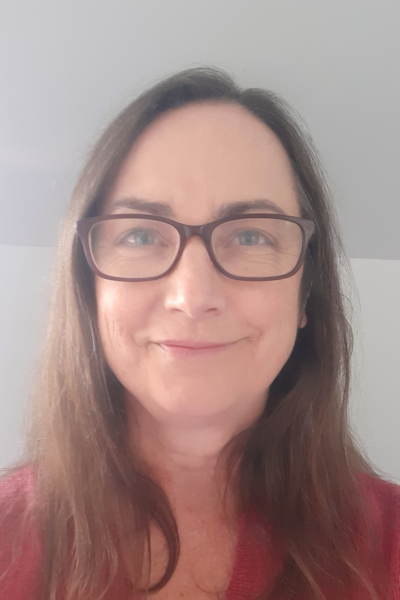$3m in NHMRC funding to enhance health care
2024-08-19T11:32:00+10:00
.cropimg.width=335.crop=basic.jpeg)
NHMRC Partnership Project funding is awarded for research to create partnerships among decision-makers, policymakers, managers, clinicians and researchers.
Adobe Stock
UNSW researchers working to improve health care for those affected by sepsis and chronic disease have received NHMRC Partnership Project funding.
Funding from the latest round of National Health and Medical Research Council (NHMRC) Partnership Projects has gone to two separate UNSW Sydney projects.
The first focuses on improving post-sepsis follow-up care. The second is to provide a virtual health platform for people with chronic disease.
The funding was announced by the Assistant Minister for Health and Aged Care, Ged Kearney.
The projects, from UNSW Medicine & Health and UNSW Engineering, were each awarded more than $1.4 million for their Partnership Projects, sharing over $45 million of funding awarded for research to create partnerships among decision-makers, policymakers, managers, clinicians and researchers.
UNSW Deputy Vice-Chancellor, Research & Enterprise, Professor Bronywn Fox congratulated the UNSW researchers for their continued success in partnering in research to improve community health.
“The two Partnership Projects that received funding this year will improve the long-term health care for many Australians. Turning research into practice is such a key to making progress in health care, and the NHMRC funding enables our academics to work with a range of partners to ensure that happens,” Prof. Fox said.
Clinician and consumer partnership for post-sepsis follow-up care
Researchers at The George Institute of Global Health and UNSW Sydney will receive close to $1.5 million to develop the first targeted, co-designed models of care following the life-threatening condition of sepsis in Australia. Currently, up to 70% of survivors return to hospital within one year of discharge.
Chief investigator Associate Professor Naomi Hammond, who is Head of the Critical Care Program at The George Institute, Conjoint Associate Professor at the Faculty of Medicine, UNSW Sydney, and Executive Director of Research at North Sydney Local Health District, said an estimated 55,000 Australians experienced sepsis each year with 18,000 adults ending up in intensive care.
“Leaving hospital does not mean you’ve left sepsis behind. Adult survivors experience a reduced quality of life that can impact mobility, cause psychological problems and exacerbate pre-existing chronic conditions. They also face an increased risk of death in subsequent months and years,” she explained.
For children, up to 40% experience serious consequences that affect their physical health, such as amputations, and cognitive impairment impacting their development and education.
“Currently, health services focus on the acute illness, despite the bleak legacy sepsis leaves. We want to change that by focusing on what happens once a person leaves hospital, so we can ultimately improve the long-term outcomes for all sepsis survivors,” said A/Prof. Hammond.
“This program of work has been co-designed with the Sepsis Australia Consumer Partner and Advocacy Program and we’re all incredibly excited and appreciative of the NHMRC’s Partnership Project grant as it is our first significant grant dedicated to post-sepsis follow-up,” she added.
The NHMRC grant, along with matched funding from partners over five years, will enable A/Prof. Hammond and her team to identify current gaps in health services, develop follow-up models of care and test strategies for adult and paediatric sepsis survivors and their families. This includes bereaved families of approximately 8700 Australians whose lives are lost to sepsis each year.
“Surviving sepsis and leaving hospital is a big enough struggle. By partnering with Sepsis Australia, Clinical Excellence Queensland and the Australian Commission for Safety and Quality in Healthcare, we will be working to improve the person’s health service journey to reduce hospital readmissions and provide them with a higher quality of life,” said A/Prof. Hammond.
Smartphone app to provide better care for those with chronic disease
Scientia Professor Nigel Lovell from the Graduate School of Biomedical Engineering has been awarded more than $1.4 million to develop a virtual health approach providing care for people with chronic comorbidities.
Prof. Lovell will partner with the South Eastern Sydney Local Health District (SESLHD) to build and implement a virtual health platform supporting patients with complex chronic disease to remain safely at home.
The digital health platform (called TeleClinical Care – TCC) will be integrated into the virtual care and home-based care services run by the District, through the Community Management Centre.
It will also extend the reach and performance of SESLHD’s Hospital in the Home (HITH) service, which to date has focused on acute and sub-acute care in the home.
“TCC is smartphone app for patients coupled with a secure clinician portal that is integrated to the hospital electronic medical record system,” says Prof. Lovell.
“It has already been used to manage patients with heart failure and COVID-19. And we will now co-design TCC-360 to expand its applications so it can work across a wider range or areas including respiratory disease, stroke, post-surgical rehabilitation and geriatrics. The intent is for TCC-360 to become the remote monitoring backbone of SESHLD’s virtual health strategy.”
Prof. Lovell and SESLHD collaborator Prof. Sze-Yuan Ooi are working with partner organisations Neuroscience Research Australia, and the Austrian Institute of Technology and Microsoft Australia. They will further develop TCC-360 to support real-time physiological measurements with concurrent teleconferencing through an integration with Microsoft Teams, and support rehabilitation and secondary prevention through an integration with NeuRA's StandingTall exercise and rehabilitation software.
The TCC development will be supported by the health software foundry at the UNSW Tyree Institute of Health Engineering (IHealthE), which will also provide software integration and support during the implementation. The implementation science work will be conducted by investigators from UNSW’s School of Population Health.
Media enquiries
For enquiries about this story, please contact Stefanie Menezes.
Tel: +61 2 9065 3225
Email: s.menezes@unsw.edu.au







